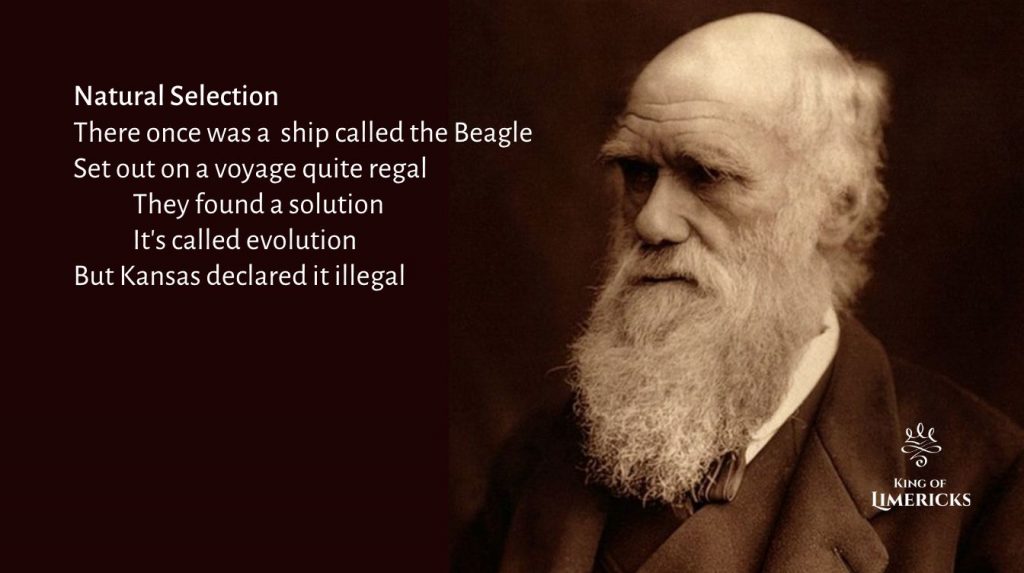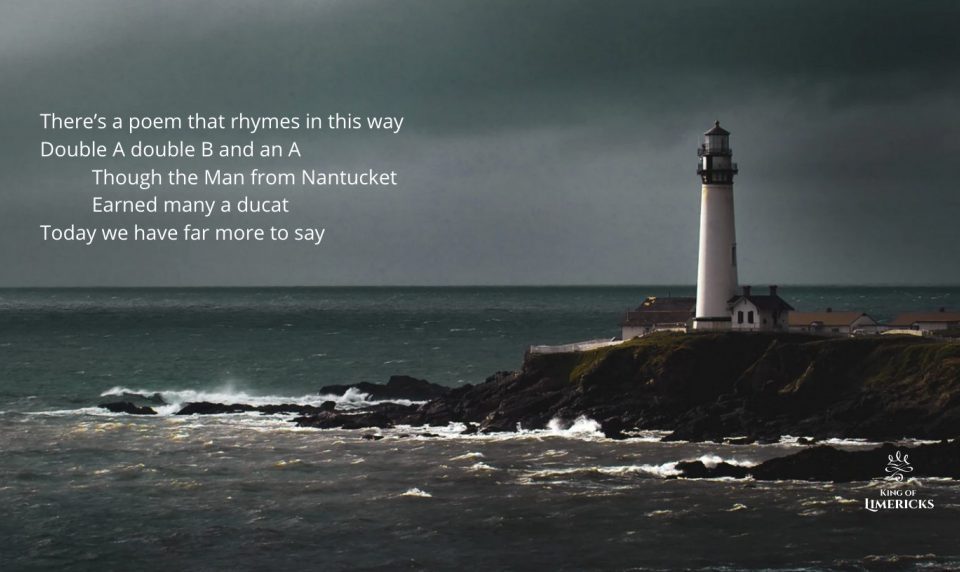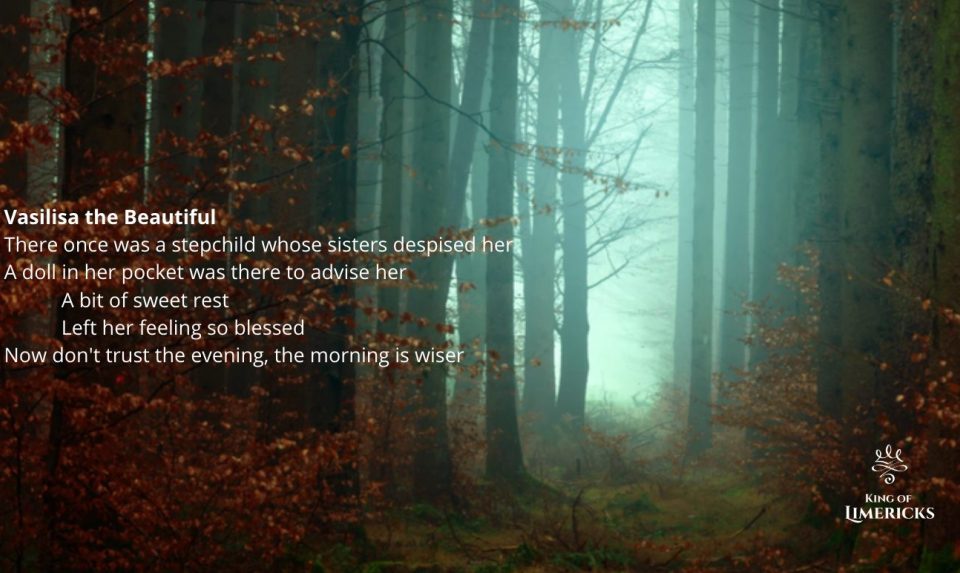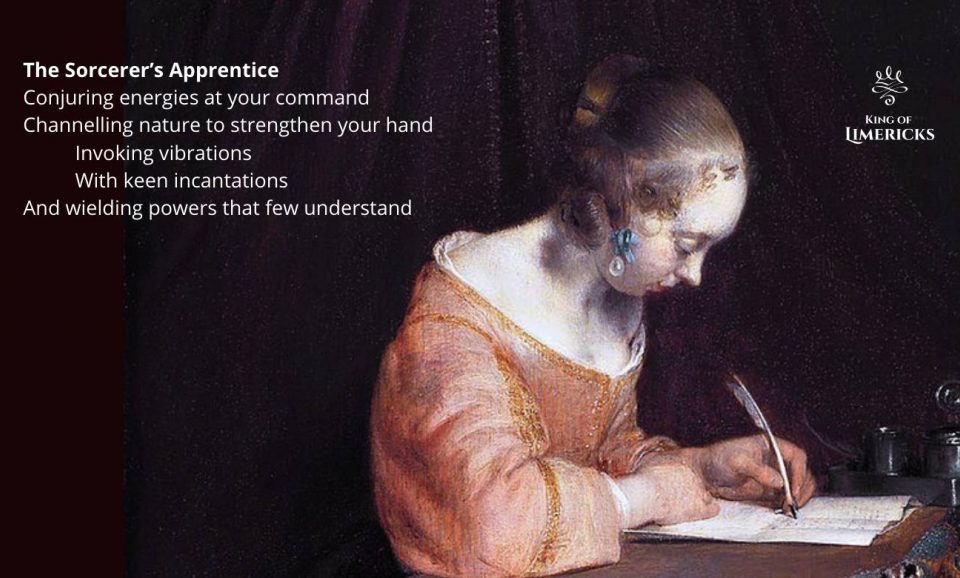
What is a Limerick and how do I write one?

There are two types of people in the world: those who just enjoy watching the original Star Wars trilogy, and those who recognize it as the monumental religious foundation that it is. You could guess that I’m a member of the second group, and you would be right. I am a true believer. When I say that Star Wars is a religion, I mean that in the very best sense of the word. Like the holiest scriptures of yore, the modern sci-fi epic performs all the highest functions of a sacred text — providing moral instruction, metaphysical exposition, psychological examination, and social cohesion — while steering clear of the faults and transgressions that have in recent times sullied the reputation of organized religions almost beyond the point of forgiveness.
The Virtues of Star Wars Mythology
Let us begin by considering the virtues of Star Wars mythology that distinguish it from the kinds of religious doctrines that we are probably more familiar with in the contemporary western world. Unlike the forms of Levantine monotheism that have come to dominate our cultural heritage over the past couple thousand years, the legends of Jedi heroics do not lend themselves to a dogmatic interpretation. From the opening words, “A long time ago, in a galaxy far, far away…”, we are directed to think of this as the distant past, yet the outer space setting is decidedly futuristic. In the first few seconds we confront our first paradox: we are in the future, we are in the past. Thus we depart from the temporal and the mundane, and we enter the fantastic and transcendent, where time is eternal and ahistorical.
Moreover, here in dreamland, there is no confusing the intergalactic adventures for an actual account of ancient civilizations. There is no attachment to one tribe or ethnicity, no true ancestors to whom we can trace some royal or divine lineage, and no cause for anxiety about geological or historical findings that could compromise the literal authenticity of our narrative. This detachment allows us to plunge the depths of space worry-free, and as we do so it becomes increasingly obvious that what we are really exploring is not outer space, but inner space.
In addition to freeing our imagination from the confines of physical laws and historical facts, the fantasy setting opens our mind to the pluralism of wonder. There is no indoctrination into a creed of with-us-or-against-us exclusivity; this is a saga through many worlds and welcoming to many world views. The ways of the Force do not proclaim exclusive access to a higher power reserved for a select nation or sect. Many followers of Christ and Mohammed also manage to maintain an inclusive faith, believing that everyone who worships a single god, be it Yahweh or Allah or someone else, is really worshipping the same One god. Others are even more open-minded, respecting all forms of reverence to all forms of godliness. But too many monotheists, and certainly all those who make the news headlines, seem convinced that the path of truth is theirs and theirs alone.
Certain Christians, for example, like to cite the Book of John (14:6) in which Jesus is quoted as saying, “I am the way, the truth and the light; no one comes to God but through me.” They would have you believe that this means the only path to spiritual elevation is through the teaching of Christ, and that every other so-called teacher is a mouthpiece for Satan. The Jedi, however, understands that the path to enlightenment is one of personal development, that all growth takes place “through me,” and that a maxim like “I am the light” is a mantra for self-realization rather than a beacon of outside authority.
Consider Yoda’s advice to Luke upon entering a foreboding cavern, reminding his student to shift his attention inward: “You will find only what you bring in.” The light we crave resides within each of us, and unfortunately, so does the darkness we dread. “You will know,” says Yoda, “when you are calm, at peace.” Such Jedi wisdom is worth bearing in mind through any period of crisis or indecision, encouraging us to cultivate the positive through self-reliance and to weed out the negative through self-discipline.
The Ways of the Force
It is, of course, Yoda who preaches the religion of Star Wars most explicitly. He has been training his apprentices in the ways of the Force for over 800 years, and yet the Force remains a mystery, too often misunderstood, too easily misused. Obi Wan Kenobi gives our clearest and earliest definition of the Force in A New Hope, explaining it to young Luke as, “an energy field created by all living things. It surrounds us… penetrates us… and binds the galaxy together.”
With fewer than 20 words, Obi Wan has made a tremendous theological proposition. Han Solo accurately calls the Force a religion (albeit a “hokey” one), but it clearly differs from the personal deity that we would call God. It is not a force that exercises a will of its own or exerts an influence in our daily lives. It does not demand worship or offering. Instead, it sounds more comparable to a force like gravity, but operating in the spiritual as well as the physical realm. And interestingly, this Force is no demiurge. It played no part in the creation of the universe; on the contrary, nature created it.
I like to think of the Force as something akin to cosmic consciousness. As our physical brains mysteriously generate what we experience as consciousness, the physical universe mysteriously generates this field of energy. Still, this energy remains difficult to pin down, and can really only be described through analogies and metaphors. Because it exceeds our simple human understanding, it comes as no surprise that people might try and domesticate it with personal characterizations, anthropomorphize it in other words. Once we’ve given it a name and a personality, it’s so much easier to relate to it. The trouble is that, over time, we come to forget that this personalization was only a tool, a shortcut to grasping some slippery metaphysics, and we form attachments to these divine personages.
When we just think of it as the Force, however, it stays in that fuzzy category with gravity and electromagnetism— always present, very powerful, and still invisible — but with no mind of its own. Sages have offered similar philosophies, including Buddhism. But people always seem so intent on deifying something, so they name it after Buddha and end up worshipping statues of his likeness. Perhaps Taoism is the only religion, if it can even be called that, which retains the impersonal, ineffable quality of the Force. The Tao, typically translated as the Way, is not so far from the Force, and in fact, people are probably more likely to worship Yoda than Lao-Tzu. But ultimately, the Force is not about having an entity to worship and exalt, but rather an energy to ponder and absorb.
“The Tao that can be spoken,” it is said, “is not the true Tao.” It can indeed make an awkward topic for conversation, because it encompasses so much paradox, a better subject for deep meditation than for roundtable discussion. The longer you think about the Force or the Tao, the more you end up describing it by what it’s not: non-doctrinal, non-dogmatic, non-evangelizing, non-theistic. This via negativa approach — defining the divine by what it isn’t — has one of its earliest and most influential proponents in the 5th century Christian theologian Pseudo-Dionysius the Areopagite, and I have heard no description of God that comes as close as his to conveying the elusive nature of the Force:
He is neither number nor order; nor greatness nor smallness; nor equality nor inequality; nor similarity nor dissimilarity; neither is He still, nor moving, nor at rest; neither has He power nor is power, nor is light; neither does He live nor is He life; neither is He essence, nor eternity nor time; nor is He subject to intelligible contact; nor is He science nor truth, nor a king, nor wisdom; neither one nor oneness, nor godhead nor goodness; nor is He spirit according to our understanding, nor a son, nor a father; nor anything else known to us or to any other of the beings or creatures that are or are not. [Mystical Theology]
Small wonder that the writings of old Pseudo-Dionysius never quite captured the imagination of your garden variety church-goer. This is precisely why we resort to symbolic story telling. Such mind-bending paradoxes may appeal to the hermetic philosophers inclined to spending decades in solitary contemplation, but for the rest of us, the mythic dramas provide a far more accessible avenue for engaging our minds and souls. It’s through these supernatural, interstellar fantasies that we can better recognize our own greatest hopes and fears.
Any American who grew up in the 1970s knows what it means to share in this repository of George Lucasian myth. Much as the Bible continues to serve as a unifying gel for one very large global community, the adventures of Luke Skywalker and the menace of Darth Vader contributed to our early psychic development and remain a visceral part of our childhood. This collective participation forms the tribal bond of our subculture, bringing a sense of social cohesion founded on common experience, shared ideology and a mutual cinematic obsession.
Like drawing on a powerful story from scripture, we invoke scenes and characters knowing that they carry a certain emotional charge. When, for example, in a time of need, we turn to a friend and implore them, “Help me, Obi Wan Kenobi, you’re my only hope,” we know they won’t let us down. Or when they in turn remind us, “Don’t give in to the dark side,” then we know it’s time to pause and reset our own moral compass.
We might find a lot of fun and games on the surface of Jedi knighthood, agile swordplay and nimble acrobatics, a refreshing absence of tedious liturgy, longwinded scripture and ominous hellfire; but “Excitement… adventure… a Jedi craves not these things,” so Yoda counsels us. The Force is no joke. It addresses the gravest questions of good and evil, the deepest nature of our Selves, and the very fabric of the cosmos. And in the course of my limericks and essays, I hope to make its genuine value clear to anyone who shares my thirst for the sweet nectar that flows from the cup of wisdom.
Stay tuned next week, when I sharpen my light saber against the coarse edge of my own shadow.
Further Reading
If you enjoyed this article, please consider sharing it and joining the mailing list. You might also appreciate some of the following essays and limericks.




